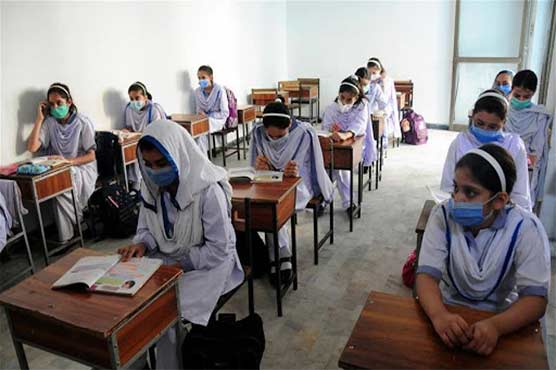The Punjab Education Department has announced a major academic reform aimed at raising the quality of education and promoting academic discipline in government colleges across the province. The new Punjab Government education policy sets clear academic and disciplinary expectations for students. It ensuring they take their studies seriously and maintain consistent performance throughout the year.
The official announcement states that students who fail two or more subjects will now be subject to severe academic fines. Additionally the policy enforces mandatory exam and test participation and imposes financial penalties for absences. This program is a significant step to enhance the learning environment in Punjabi government colleges and guaranteeing that students stay dedicated to their studies.
Students Failing in Two or More Subjects to Face Disqualification
As part of the new Punjab Government education policy any student receiving an F grade in two or more subjects will no longer be eligible for forwarding to the admission board. This implies that until they pass their failed subjects students will not be permitted to move on to the following class.
This rule reflects the growing number of students in government colleges who are performing below expectations. Many students frequently disregard their academic obligations in the hopes of passing by taking additional tests according to officials from the Punjab Higher Education Department. By encouraging uniformity and accountability throughout the academic year the new policy aims to alter that perspective.
The goal of this rule, according to a department official, is to encourage students to reach a foundational level of competency in each subject before continuing, not to penalize them. The goal of this policy is to instill a sense of accountability in students. The intention is to motivate them to focus on learning and not take academic requirements lightly the official stated.
New Fine System for Absences in Exams and Tests
The Punjab Education Department has introduced a structured fine system to reduce absenteeism during college exams and monthly tests.
- Under the new regulations:
- Students missing any paper in college examinations will be fined Rs. 200 per paper.
- Students skipping monthly tests will be fined Rs. 100 per paper.
- Students missing any paper in college examinations will be fined Rs. 200 per paper.
- The purpose of this fine system is to promote regular attendance and encourage active participation in all academic assessments.
- According to the department, regular assessment enhances performance on final board exams and aids in the early identification of students’ areas of weakness.
- Student absence will be marked as a fail.
- By stopping students from skipping exams without a good reason, this rule encourages accountability and equity.
- According to the Punjab government educational policy attendance are just as important as academic success.
Mandatory Attendance in Monthly, December, and Pre-Board Exams
Another significant feature of this new Punjab Education Department policy is the mandatory attendance requirement in all monthly tests December examinations and pre-board exams. These assessments are considered as important for tracking progress and preparing students for final exams.
College principals and teachers have been directed to keep thorough records of each student academic progress and to closely monitor attendance. In order to identify academically weak students and offer them extra support. The department also intends to implement an internal performance tracking system throughout the Punjab government colleges.
This action guarantees that students stay involved throughout the school year and get ongoing performance feedback. The department hopes to establish a balanced system that prioritizes consistent effort over last-minute preparation by concentrating on internal evaluations.
Policy Aims to Promote Academic Accountability
The Punjab Government education policy is part of a broader strategy to introduce accountability at both student and institutional levels. Officials have observed that a lack of seriousness among students combined with lenient promotion rules has resulted in declining educational standards.
With the introduction of strict promotion rules and fines the Punjab Education Department hopes to reverse this trend. The policy is expected to improve pass percentages and reduce the number of students failing in two or more subjects in government colleges in Punjab.
According to a senior Higher Education Department official casual enrollment will no longer be accepted at colleges. Pupils must be dedicated, show up to class, and do well academically. The goal is to turn government colleges into premier educational institutions that generate graduates who are capable and well-behaved.
Reactions from Students and Educators
The announcement of the new Punjab Government education policy has sparked mixed reactions among students and educators. Some students feel the policy is too strict especially the financial penalties which they believe may affect those from lower income backgrounds. However, others see the change as a much needed step toward building academic responsibility.
Stricter rules could help students stay focused all year long and avoid last minute stress before tests according to many students. Additionally they think that consistent evaluations and required attendance will help them stay on top of the curriculum and do better on board exams.
Teachers however have generally embraced the policy. Punjabi college instructors have long complaining low student attendance and a lack of seriousness. They think that students will take college activities more seriously if they face fines and academic repercussions.
One lecturer from a government college in Lahore shared For years we have struggled to get students to attend regularly. This policy gives us the authority to enforce discipline. Students will now reconsider ignoring their assignments or skipping tests. In general the education community sees this initiative as a step in the right direction toward improving Punjab higher education standards and regaining the legitimacy of government colleges.
Implementation and Monitoring
The Punjab Higher Education Department has directed all government college principals to establish Academic Monitoring Committees (AMCs) in order to guarantee a seamless implementation. These committees will be in charge of upholding the new rule of keeping track of attendance or collecting penalties and reporting back to the Directorate of Education.
Additionally the department is working toward digitizing student academic records. This digital system will help track attendance test results and disciplinary actions in real time improving transparency and reducing administrative errors.
The Punjab Government education policy emphasizes that monitoring and accountability will be continuous processes. Colleges that fail to comply with the regulations may face administrative reviews ensuring that the new rules are implemented uniformly across the province.
Long-Term Educational Vision
- Punjab shifts focus from exams to overall academic discipline.
- Policy promotes consistency, responsibility, and regular effort.
- Strict attendance, fines, and promotion rules introduced.
- Measures aim to raise standards in government colleges.
- Focus is educational, not punitive.
- Goal: build a disciplined, competitive academic culture.
- Public colleges to match private institutions in performance.
Parhlo Pakistan – Your Trusted Source for Educational News
At Parhlo Pakistan we are committed to bringing you the latest updates from the education sector across Pakistan. Our platform provides in depth coverage of academic policies, board exam updates, student resources and educational reforms from institutions across the country.
Whether you are a parent, teacher or student Parhlo Pakistan wants to keep you updated on all the significant events influencing Pakistan’s academic future. We think that having access to reliable information helps teachers and students make better academic choices.
Conclusion: A Step Toward Educational Excellence
To improve academic standards in the province the Punjab government education policy, which targets students who fail in two or more subjects is a daring and forward thinking step. The policy main objective is to guarantee that students stay dedicated to their studies. Also form lifelong learning habits even though it also applies harsher rules and financial penalties.
By encouraging regular attendance continuous assessment and accountability the Punjab Education Department is laying the groundwork for a more disciplined and high performing education system. Though some students may initially find the new rules challenging. The long term benefits of improved learning outcomes and better academic integrity cannot be denied.
Ultimately this policy is a reflection of the government’s dedication to promoting academic excellence, fairness and responsibility essential qualities for building a bright and educated future for Punjab youth.




